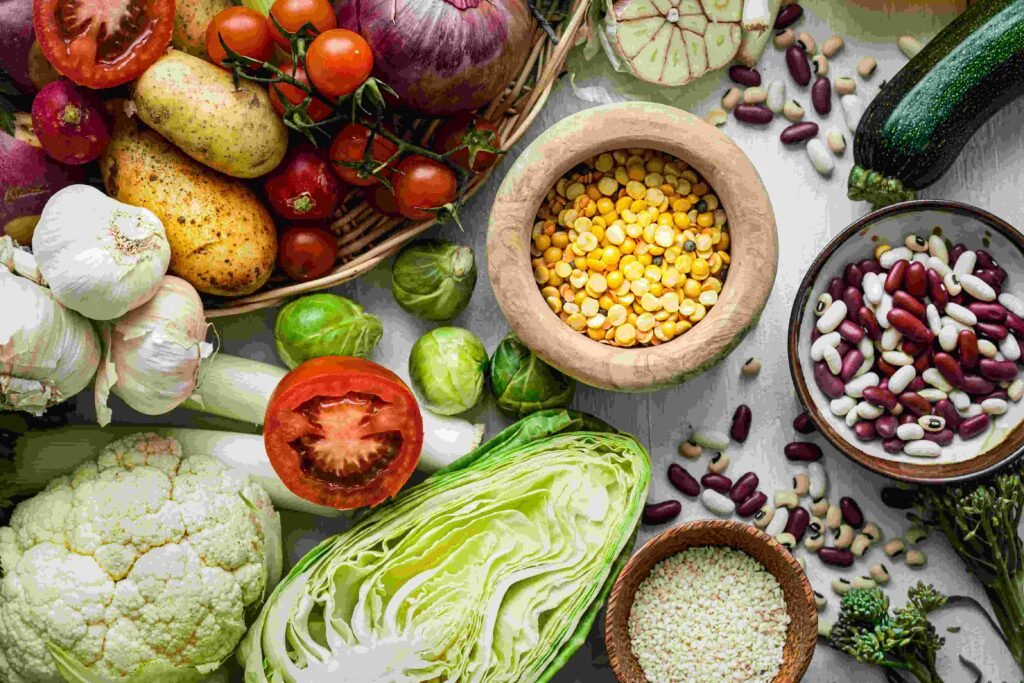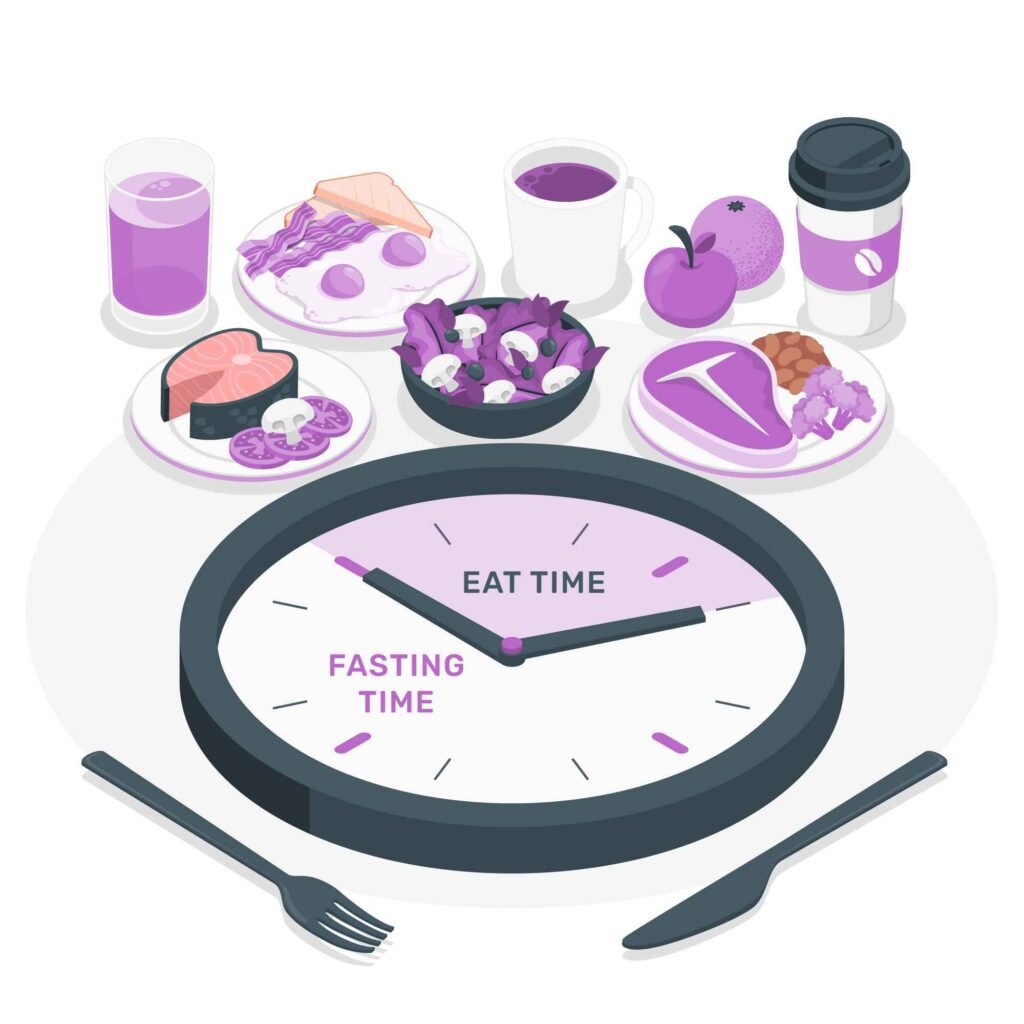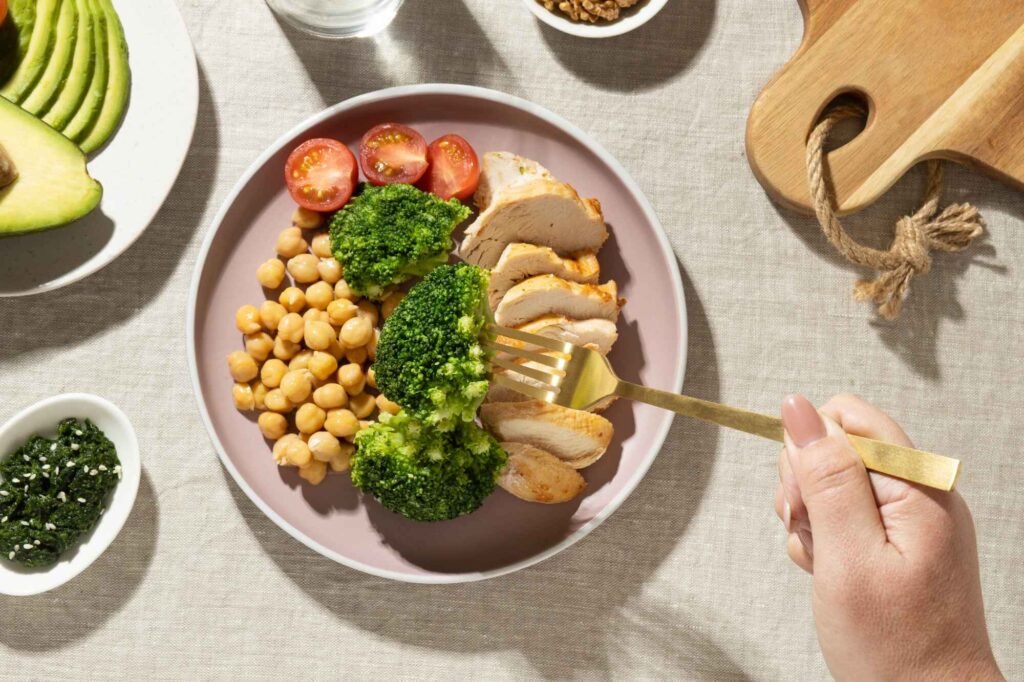
Ultra-Processed Foods and Health Implications
Introduction to Ultra-Processed Foods
In today’s fast-paced world, convenience often takes priority over nutrition. As a result, ultra-processed foods have become a staple in many households. They are widely consumed because they are affordable, accessible, and have a long shelf life. But what exactly are ultra-processed foods, and why should we be concerned about their impact on our health? Understanding their composition and the health implications they carry is crucial for making informed dietary choices.
Ultra-processed foods are industrial formulations that contain little to no whole foods. Instead, they are made up of substances derived from food, combined with synthetic ingredients. For example, products like chips, sugary cereals, instant noodles, and packaged snacks fall into this category. Although these foods are highly appealing, they often lack essential nutrients, which poses significant risks to our health.
What Defines Ultra-Processed Foods?
To fully grasp the impact of ultra-processed foods, it’s important to recognize their defining characteristics. Typically, these foods:
- Contain additives such as preservatives, artificial flavors, and sweeteners.
- Are highly refined and stripped of natural nutrients.
- Include high levels of sugar, salt, and unhealthy fats.
- Are designed for maximum convenience and extended shelf life.
For instance, frozen meals, sodas, and fast-food items are all examples of ultra-processed foods. While they are designed to be tasty and convenient, their nutritional value is often compromised.
The Growing Prevalence of Ultra-Processed Foods
In recent years, the consumption of ultra-processed foods has grown dramatically. Supermarket shelves are packed with these products, and they are marketed as quick, easy, and delicious solutions for busy lifestyles. Consequently, many people are replacing traditional, home-cooked meals with these processed alternatives.
Several factors contribute to this trend. For one, urbanization and industrialization have made processed foods more accessible. Additionally, aggressive marketing campaigns and the expansion of fast-food chains have normalized the consumption of these products. In fact, statistics reveal that in many developed countries, ultra-processed foods account for more than 50% of the average person’s dietary intake. This shift away from traditional diets has serious consequences for public health.
The Nutritional Void of Ultra-Processed Foods
One of the most concerning aspects of ultra-processed foods is their lack of essential nutrients. Unlike whole or minimally processed foods, these products are often calorie-dense but nutrient-poor. This combination can have detrimental effects on health.
Low in Fiber
First and foremost, ultra-processed foods are notoriously low in dietary fiber. Fiber is essential for gut health, digestion, and maintaining healthy bowel movements. Without enough fiber, you may experience issues like constipation and poor digestion. Over time, a lack of fiber can even increase the risk of conditions like colon cancer.
High in Sugar and Sodium
Additionally, ultra-processed foods are loaded with sugar and sodium. These ingredients are added to enhance flavor and prolong shelf life. Unfortunately, excessive sugar intake is a major contributor to obesity, type 2 diabetes, and dental problems. Meanwhile, high sodium levels are linked to hypertension and cardiovascular diseases.
For example, many breakfast cereals, snack bars, and processed meats contain hidden sugars and salts. While they may taste good, they can wreak havoc on your health if consumed regularly.
Poor Quality Fats
Another issue with ultra-processed foods is their fat content. These products often contain trans fats and saturated fats, which are harmful to heart health. Consuming too many of these fats can lead to unhealthy cholesterol levels and increase the risk of heart disease.
Therefore, it is important to choose healthier fat sources, such as those found in avocados, nuts, and olive oil, rather than relying on processed alternatives.
Health Implications of Ultra-Processed Foods
It’s no secret that ultra-processed foods are convenient and tasty. However, their long-term consumption can have serious health consequences. Here are some of the most significant risks associated with these foods.
1. Obesity Epidemic
One of the most alarming consequences of ultra-processed food consumption is the rise in obesity rates. These foods are often calorie-dense but low in nutrients, making it easy to overeat without feeling full. In addition, their addictive flavors and textures can trigger cravings, leading to poor portion control.
Over time, consuming too many ultra-processed foods can result in weight gain and, eventually, obesity. Since obesity is a major risk factor for other health issues, such as heart disease and diabetes, it is important to limit these foods in your diet.
2. Increased Risk of Chronic Diseases
Moreover, a diet high in ultra-processed foods is associated with an increased risk of developing chronic diseases. Studies have shown that regular consumption of these foods can lead to:
- Type 2 diabetes
- Cardiovascular diseases
- Certain types of cancer
For instance, the high levels of sugar, unhealthy fats, and artificial additives in processed foods can damage cells and trigger inflammation. Over time, this inflammation can contribute to the development of chronic illnesses.
3. Impact on Mental Health
Interestingly, the effects of ultra-processed foods are not limited to physical health. Emerging research suggests a strong link between diet and mental health. Specifically, diets high in processed foods have been associated with higher rates of depression and anxiety.
Why is this the case? For one, ultra-processed foods often lack essential nutrients like omega-3 fatty acids, which play a key role in brain function. Additionally, the additives and preservatives found in these foods can disrupt the gut microbiome, which is closely linked to mental well-being.
4. Gut Health Concerns
Speaking of gut health, ultra-processed foods can significantly disrupt the balance of beneficial bacteria in the digestive system. These foods often contain emulsifiers, preservatives, and artificial additives that harm gut bacteria. Furthermore, their lack of fiber makes it difficult for the gut to function properly.
Over time, poor gut health can lead to inflammation, digestive issues, and even weakened immunity. Therefore, incorporating fiber-rich whole foods into your diet is essential for maintaining a healthy gut.
Why Are Ultra-Processed Foods So Addictive?
At this point, you might be wondering: if ultra-processed foods are so unhealthy, why are they so hard to resist? The answer lies in their design. These foods are engineered to be hyper-palatable, meaning they stimulate the reward centers in the brain.
When you eat ultra-processed foods, your brain releases dopamine, a neurotransmitter that creates feelings of pleasure. This “reward effect” encourages you to keep eating, even when you’re not hungry. Additionally, the combination of sugar, fat, and salt in these foods can trigger cravings, making it difficult to break free from their grip.
Social and Economic Impacts
The consequences of ultra-processed foods extend beyond individual health. In fact, they have significant social and economic impacts as well.
Health Inequality
For example, low-income families often rely on ultra-processed foods because they are affordable and convenient. Unfortunately, this reliance perpetuates health disparities, as these families are at higher risk for obesity, diabetes, and other diet-related illnesses.
Economic Burden
Furthermore, the healthcare costs associated with chronic diseases place a significant strain on national economies. Preventative measures, such as improving access to healthy foods and educating the public about nutrition, are essential for reducing this burden.
Health Consequences of Long-Term Ultra-Processed Food Consumption
Type 2 Diabetes and Blood Sugar Spikes
Ultra-processed foods, packed with refined sugars and simple carbohydrates, significantly affect blood sugar levels. When you consume these foods, your blood sugar spikes quickly, providing a short burst of energy. However, this rapid rise is usually followed by a sharp crash, leaving you feeling tired and hungry. Consequently, frequent blood sugar fluctuations can lead to insulin resistance, the primary cause of type 2 diabetes.
Moreover, many ultra-processed products contain hidden sugars disguised under different names like high-fructose corn syrup, dextrose, and maltose. As a result, it’s easy to exceed the daily recommended sugar intake without even realizing it. To avoid this, focus on whole foods like fruits, vegetables, and whole grains, which help stabilize blood sugar levels and improve overall health.
Heart Disease and Hypertension
In addition to diabetes, ultra-processed foods can also harm your cardiovascular health. The high levels of salt, sugar, and unhealthy fats in these foods contribute to heart disease and high blood pressure. For example, trans fats and saturated fats increase “bad” LDL cholesterol while decreasing “good” HDL cholesterol. This imbalance can lead to plaque buildup in your arteries, increasing the risk of heart attacks and strokes.
Furthermore, the excessive sodium content in processed foods causes fluid retention, which raises blood pressure. Over time, high blood pressure damages your arteries and puts extra strain on your heart. Therefore, replacing processed snacks with heart-healthy options like nuts, avocados, and olive oil can help protect your cardiovascular system.
Digestive Issues and Poor Gut Health
Another major concern with ultra-processed foods is their impact on digestion. Since these foods lack fiber, they do little to support healthy digestion. Fiber is essential for maintaining regular bowel movements and promoting a healthy gut microbiome. Without it, you may experience constipation, bloating, and other digestive issues.
Moreover, the additives and preservatives found in ultra-processed foods can disrupt your gut bacteria. When your gut microbiome is out of balance, inflammation and poor nutrient absorption can occur. To improve gut health, incorporate fiber-rich foods like whole grains, legumes, and leafy greens into your diet.
Impact on Mental Health and Cognitive Function
The Link Between Diet and Depression
It may surprise you to learn that ultra-processed foods can also affect your mental health. Research shows that people who consume diets high in processed foods are more likely to experience depression and anxiety. One reason for this is that these foods often cause chronic inflammation, which has been linked to mood disorders.
Additionally, ultra-processed foods lack essential nutrients like omega-3 fatty acids, which play a critical role in brain function. When your body doesn’t get these nutrients, it can affect your mood and emotional well-being. Therefore, switching to a balanced diet rich in whole foods like fish, nuts, and vegetables can improve mental health and reduce the risk of depression.
Cognitive Decline and Memory Loss
Ultra-processed foods may also have long-term effects on brain function. Consuming these foods regularly has been linked to poorer memory and cognitive decline. For example, diets high in sugar and unhealthy fats can impair learning and memory by damaging brain cells.
Furthermore, some studies suggest that a diet rich in ultra-processed foods increases the risk of neurodegenerative diseases like Alzheimer’s. To protect brain health, prioritize foods rich in antioxidants, such as berries, leafy greens, and whole grains. These foods support cognitive function and may help prevent memory loss.
Environmental and Societal Impacts of Ultra-Processed Foods
Environmental Footprint
It’s important to recognize that ultra-processed foods don’t just affect our health; they also harm the environment. The production, packaging, and transportation of these foods require large amounts of energy and resources. For example, most ultra-processed foods come in single-use plastic packaging, which contributes to pollution and landfill waste.
Moreover, the industrial processes used to create these foods result in high carbon emissions, further contributing to climate change. By choosing fresh, locally-sourced foods, you can reduce your environmental footprint and support sustainable practices.
Health Inequality and Accessibility
Ultra-processed foods also play a role in health inequality. In many low-income communities, fresh produce is expensive or difficult to access, leading families to rely on cheap, processed alternatives. This reliance increases the risk of obesity, diabetes, and other diet-related diseases in these populations.
Furthermore, the long-term healthcare costs associated with these diseases place a significant burden on both individuals and healthcare systems. Therefore, improving access to healthy, affordable foods is essential for reducing health disparities and promoting public health.
Practical Tips to Reduce Ultra-Processed Foods
Start with Small Changes
Transitioning away from ultra-processed foods can feel overwhelming, but small changes can make a big difference. Begin by making simple swaps in your diet. For example:
- Snack Smart: Replace chips and cookies with healthier options like fruits, nuts, or yogurt.
- Choose Whole Grains: Instead of white bread or pasta, opt for whole-grain versions.
These small steps can help you gradually reduce your dependence on processed foods.
Read Food Labels Carefully
Understanding food labels is crucial for identifying ultra-processed products. When shopping, keep an eye out for:
- Long Ingredient Lists: The longer the list, the more likely the food is ultra-processed.
- Hidden Sugars and Additives: Ingredients like high-fructose corn syrup, artificial sweeteners, and preservatives are common in processed foods.
By reading labels, you can make more informed choices and avoid hidden additives.
Plan and Prep Your Meals
Meal planning is an effective way to reduce reliance on convenience foods. By preparing meals in advance, you can ensure healthier choices throughout the week. Consider these strategies:
- Weekly Meal Prep: Cook large batches of healthy meals that you can portion out for the week.
- Balanced Plates: Aim for meals that include a mix of whole grains, lean proteins, healthy fats, and vegetables.
Stay Hydrated with Healthier Options
Many ultra-processed foods are paired with sugary drinks like sodas or energy drinks. Instead, choose healthier beverages to stay hydrated:
- Drink Water: Aim to drink at least 8 glasses a day.
- Herbal Teas: These can provide flavor without added sugars.
- Infused Water: Add slices of lemon, cucumber, or berries for a refreshing twist.
The Role of Policy and Education
Government Regulations
Government policies can also help reduce the consumption of ultra-processed foods. For instance:
- Clear Labeling Laws: Requiring food manufacturers to clearly label sugar, salt, and fat content can help consumers make better choices.
- Marketing Restrictions: Limiting the advertising of processed foods, especially to children, can promote healthier eating habits.
Nutrition Education
Additionally, public education about nutrition is key to changing eating habits. For example:
- School Programs: Teaching children about healthy eating can help establish lifelong habits.
- Community Workshops: Offering cooking classes and nutrition workshops can empower people to make healthier choices.
Practical Strategies to Break Free from Ultra-Processed Foods
Identify Ultra-Processed Foods in Your Diet
To successfully reduce ultra-processed foods, the first step is to identify them in your daily diet. Start by taking note of the foods you commonly consume. If you often eat packaged snacks, instant meals, sugary drinks, or fast food, these are likely ultra-processed. Knowing what you’re up against makes it easier to plan healthier alternatives.
A simple trick is to check the ingredient list. If the list is long and filled with unfamiliar names like emulsifiers, stabilizers, artificial flavors, and preservatives, it’s a red flag that the product is ultra-processed. By becoming more aware of these foods, you empower yourself to make healthier choices.
Make Gradual Swaps for Healthier Alternatives
Dramatically overhauling your diet overnight can feel daunting. Instead, focus on making gradual swaps. Small changes are easier to stick with and can lead to lasting habits. For example:
- Replace Sugary Breakfast Cereals: Instead of highly sweetened cereals, try oatmeal with fresh fruit or unsweetened yogurt with nuts and seeds.
- Snack Wisely: Swap chips and candy bars for whole fruit, unsalted nuts, or vegetable sticks with hummus.
- Choose Whole Grain Options: Replace white bread, pasta, and rice with whole-grain versions.
Over time, these small swaps can significantly reduce your intake of ultra-processed foods and improve your overall health.
The Importance of Cooking at Home
Why Home-Cooked Meals Matter
One of the most effective ways to cut down on ultra-processed foods is to cook more meals at home. When you prepare your food, you control the ingredients and cooking methods, ensuring your meals are healthier and more nutritious. Additionally, home-cooked meals often contain fewer additives, preservatives, and unhealthy fats.
Cooking at home also allows you to experiment with fresh ingredients, flavors, and recipes. As a result, you can discover new, delicious meals that are both satisfying and healthy. Plus, cooking can be a fun and rewarding experience for the whole family.
Easy Tips for Home Cooking Success
- Plan Ahead: Create a weekly meal plan to avoid last-minute decisions that may lead to choosing processed options.
- Batch Cooking: Prepare large portions of healthy meals on weekends and freeze them in individual servings for quick weeknight dinners.
- Use Simple Recipes: Start with easy, 30-minute recipes that use whole ingredients like vegetables, lean meats, beans, and whole grains.
- Keep Staples on Hand: Stock your pantry with essentials like rice, quinoa, canned beans, and frozen vegetables, so you always have the basics for a nutritious meal.
Get the Whole Family Involved
Involving your family in meal preparation makes it more enjoyable and promotes healthier eating habits. Kids are more likely to eat nutritious meals if they help prepare them. Give them age-appropriate tasks like washing vegetables, stirring ingredients, or setting the table. Not only does this encourage healthier eating, but it also creates quality family time.
Healthy and Simple Meal Ideas to Replace Ultra-Processed Foods
If you’re not sure where to start, here are a few simple and nutritious meal ideas that are easy to prepare and free from ultra-processed ingredients:
1. Breakfast Ideas
- Overnight Oats: Mix rolled oats with milk or yogurt, chia seeds, and fresh fruit. Let it sit overnight for a quick, ready-to-eat breakfast.
- Veggie Omelette: Whip up an omelette with spinach, tomatoes, onions, and bell peppers for a protein-packed start to your day.
2. Lunch Options
- Quinoa Salad Bowl: Combine cooked quinoa with chickpeas, cherry tomatoes, cucumber, and a drizzle of olive oil and lemon juice.
- Grilled Chicken Wrap: Use a whole-grain wrap filled with grilled chicken, avocado, lettuce, and tomato.
3. Dinner Recipes
- Stir-Fry: Sauté lean protein (like chicken or tofu) with broccoli, carrots, and bell peppers. Serve over brown rice or quinoa.
- Baked Salmon: Serve salmon fillets with roasted sweet potatoes and steamed green beans.
4. Healthy Snacks
- Homemade Trail Mix: Combine unsalted nuts, dried fruit, and dark chocolate pieces.
- Greek Yogurt with Honey: Add a drizzle of honey and a sprinkle of granola to plain Greek yogurt.
By incorporating these meal ideas into your routine, you can enjoy nutritious, delicious foods without relying on processed options.
How to Handle Cravings for Ultra-Processed Foods
Cravings for ultra-processed foods are normal, especially when you’re just starting to reduce them. However, there are ways to manage and reduce these cravings effectively.
1. Stay Hydrated
Sometimes, cravings are actually a sign of dehydration. Drinking water throughout the day can help keep cravings at bay. Try keeping a water bottle with you and sipping regularly.
2. Eat Balanced Meals
When you eat meals that include protein, healthy fats, and fiber, you stay fuller for longer. This reduces the urge to reach for processed snacks. For example, a balanced meal like grilled chicken with brown rice and vegetables can keep you satisfied for hours.
3. Mindful Eating
Practice mindful eating by paying attention to hunger and fullness cues. Avoid eating in front of the TV or computer, as this can lead to overeating. Instead, focus on enjoying your food and chewing slowly.
4. Healthier Substitutes
When a craving strikes, opt for healthier alternatives. For instance:
- Craving Chips? Try roasted chickpeas or air-popped popcorn.
- Craving Ice Cream? Opt for frozen yogurt or a smoothie bowl.
Over time, your taste buds will adjust, and you’ll crave ultra-processed foods less frequently.
The Role of Exercise in a Healthy Lifestyle
In addition to improving your diet, regular exercise plays a key role in maintaining overall health. Physical activity complements a healthy diet by:
- Boosting Metabolism: Exercise helps your body burn calories more efficiently.
- Reducing Stress: Physical activity releases endorphins, which improve mood and reduce stress.
- Improving Digestion: Movement helps support a healthy digestive system.
Aim for at least 30 minutes of moderate exercise most days of the week. Activities like walking, jogging, swimming, or yoga can easily fit into your routine.



